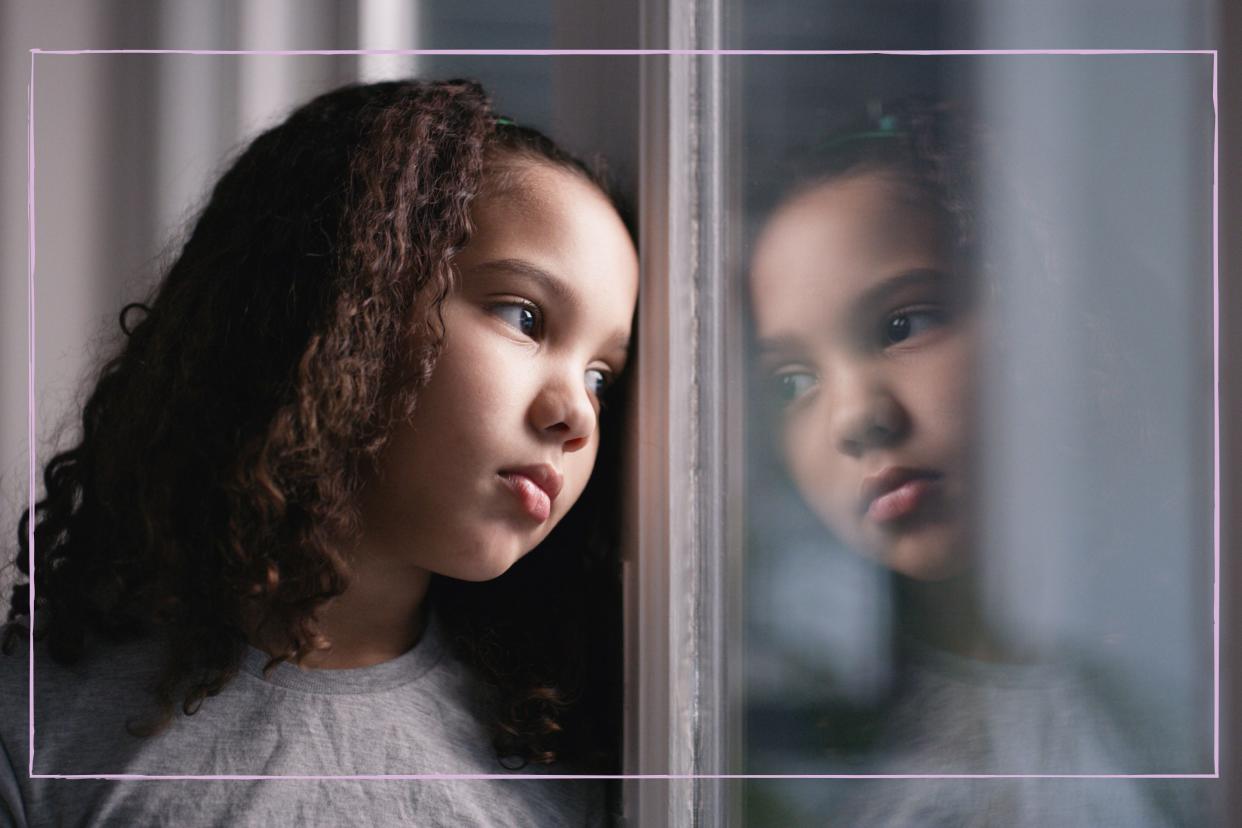Young children ‘lack the self-awareness’ to describe their feelings and could be more sad than you realise - here’s the top 3 early risk factors for childhood depression

When young children struggle to express their emotions, it can be difficult to spot more serious mood disorders. Here's why your little one could be more sad than you think, and what you need to know about childhood depression risk.
Children's mental health can be a tricky subject to navigate, and if you're raising an anxious child or have a child with any kind of mental health issue, their mental state will be something you're always aware of. While everyone wants to raise happy kids, mood fluctuations are a normal part of life and very young children aren't immune from mental health problems.
Sadness alongside mood changes is also to be expected, but when young children aren't adequately able to find the right words to express their emotions, identifying more serious issues can be challenging. Cues that sadness has become long-term or serious include subtle or dramatic outward behaviour, or invisible thoughts, feelings or physical sensations the child can't put a name to. Many parents will still not be confident at spotting either, as they can easily be confused as something entirely different.
To help parents with the challenge of recognising possible depression, the University of Alberta suggest using the Cognitive Behavioural Model to understand how the interactions of their child's feelings, thoughts and behaviour work together. By understanding how changes in one of the behaviour causes changes in the others, this understanding in conjunction with open discussion, can encourage little ones and their parents to identify and describe their thoughts and feelings.
With the components of the Cognitive Behavioural Model in mind, researchers from the university identify three risk factors for childhood depression, and how you can understand them better.
3 risk factors for childhood depression
1. Behaviour
Changes in a child’s behaviour are often the first and easiest sign for parents to pick up on. Bear in mind that while most children will experience periods of sadness, grumpiness or general bad moods, other changes or behaviours lasting longer than a week or two can indicate depression.
Therapy can be beneficial if you suspect depression, and there are things parents can do at home with the right support from medical professionals. Look out for the following changes to your child's behaviour:
Loss of interest in activities they usually enjoy.
Withdrawing from family and friends.
Disruptions to their normal routines.
Forgetting to carry out personal hygiene like washing or brushing their teeth.
Changes to eating habits.
Altered sleeping patterns.
Reduced ability to concentrate.
Lack of enthusiasm for playing or socialising.
2. Thoughts
It's common that children often engage in negative talk about themselves - this almost becomes a learned or expected behaviour among peers. For a depressed child, engaging in negative self-talk can become reflexive and they struggle to break the habit or find anything positive to say about themselves.
If you find your child persistently repeating phrases such as "I’m stupid," "Everyone in my class is better than me," "Everyone hates me," and "I'll never be good at anything," this could be hopelessness and helplessness relating to depression. You could use the following open-ended questions to get more information from them:
"When you feel sad, what kinds of thoughts do you have about yourself?"
"What do you say to yourself when you’re frustrated and want to give up?"
"Are you thinking about anything bad that might happen?"
"What are some of the things you are worried people think about you?"
"How often are you feeling upset like this?"
"What is the most frustrating part of your feelings?"
3. Feelings and physical sensations
Negative emotions manifesting as physical sensations in the body is really common in children. Indicating one of these problems is often a sign of a mental issue that a child simply doesn't know how to articulate.
In this situation, you can help your child distinguish between a genuine physical ailment, and a mental health problem they can't find the words to express. Ask them how their body feels when they are sad, or if their stomach ache happens every time they are feeling anxious. This can help create a 'language' that both sides understand. Look out for your child commonly complaining of these problems that could indicate depression:
Tummy aches.
Headaches.
Sore muscles.
Generally feeling unwell.
Tiredness.
Complaining they have no energy to play.
If you think your child could be struggling with depression, it's time to call your Doctor. The NHS also has a useful page dedicated to depression in children, that can signpost you in the right direction.
For more on this subject, there are toys to support your child's mental health, and limiting their online 'doom scrolling' can be beneficial. Teaching kids emotional intelligence can also help them maintain their mental health.

 Yahoo News
Yahoo News 
